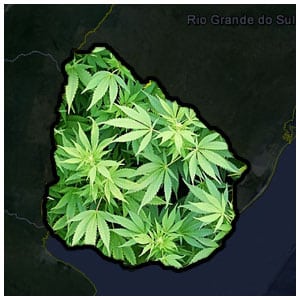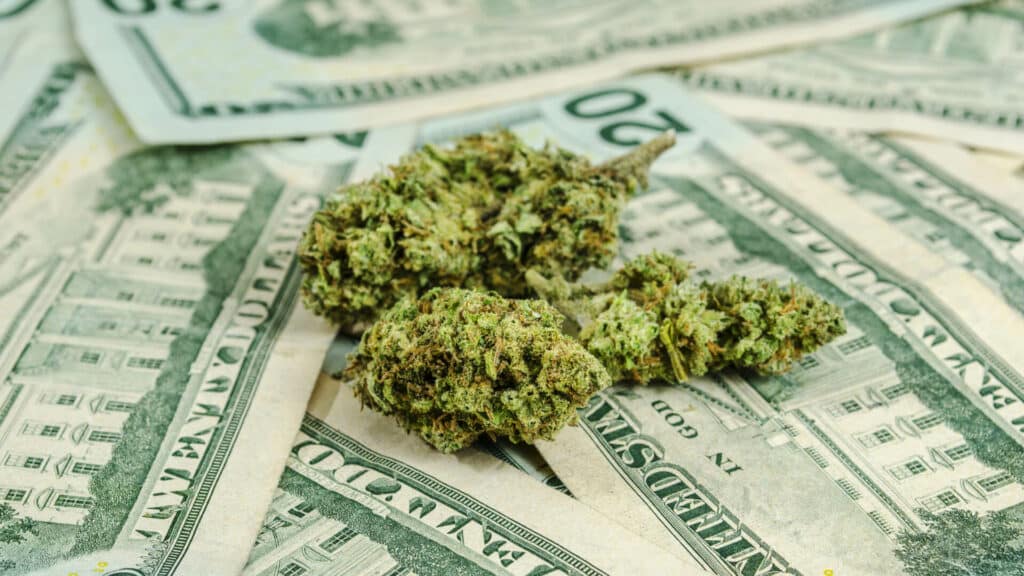 In a Sunday presidential run-off election in Uruguay, Frente Amplio (Broad Front) candidate Tabaré Vázquez beat opposition candidate Luis Alberto Lacalle Pou by 53.6 to 41.1 percent, a vote that had major implications for the future of Uruguay’s historic marijuana regulation.
In a Sunday presidential run-off election in Uruguay, Frente Amplio (Broad Front) candidate Tabaré Vázquez beat opposition candidate Luis Alberto Lacalle Pou by 53.6 to 41.1 percent, a vote that had major implications for the future of Uruguay’s historic marijuana regulation.
While Vázquez has promised to continue implementing marijuana regulation, National Party opposition candidate Lacalle Pou had said that if he were to become president, he would repeal major parts of the law, including government-regulated sales to adults – the most distinguishing feature of the Uruguayan initiative.
“Sunday’s presidential election result safeguards Uruguay’s historic marijuana legalization” said Hannah Hetzer, Policy Manager of the Americas at the Drug Policy Alliance. “The Uruguayan people determinedly chose the presidential candidate who will continue the country’s progressive policies, including the roll out of the world’s first national legally regulated marijuana market.”
Vázquez, a 74-year-old oncologist who was president from 2005 to 2010, pertains to the same left-of-center coalition as current President José Mujica, who has made world headlines in recent years for his austere lifestyle and progressive politics, including spearheading the marijuana legalization proposal. After President Mujica’s call for marijuana legalization and a year-long dynamic campaign by Uruguayan civil society groups, on December 10, 2013, the Uruguayan parliament approved the bill, making their country the first in the world to legally regulate the production, distribution and sale of marijuana for adults.
Since then, the government has been rolling out the implementation of the law, which allows for domestic cultivation of six plants per household, cannabis social clubs, and licensed sales to adult residents in pharmacies.
In recent years, debate and political will for drug policy reform has gained unprecedented global momentum. In June, the West Africa Commission on Drugs, initiated by former United Nations Secretary General Kofi Annan and chaired by former Nigerian President Olusegun Obasango, called for drug decriminalization and for treating drug use as a health issue. Shortly thereafter, the Heads of Government of the Caribbean Community (CARICOM) agreed to establish a commission toreview marijuana policy in the region in order to assess the need for reforms to marijuana laws. Currently, medical marijuana is being debated in Colombia, Chile, Costa Rica and Jamaica.
In the U.S. midterm elections, Alaska and Oregon joined Washington and Colorado in approving ballot initiatives to legally regulate marijuana, while residents in Washington DC voted 70% in favor of a measure to legalize the possession of up to two ounces of marijuana for adults over the age of 21 and allows individuals to grow up to six marijuana plants in their home. And in a surprising response from the U.S. government, in October, Assistant Secretary of the Bureau of International Narcotics and Law Enforcement Affairs William Brownfield announced the U.S.’s new position on global drug policy, which rest on four principles: respecting the UN drug control conventions; accepting flexible interpretation of the conventions; tolerating different national drug policies; and combating criminal organizations. When referring to tolerance for different policies, Brownfield even said “accept the fact that some countries will have very strict drug approaches; other countries will legalize entire categories of drugs.”
“We are witnessing a clear departure from the hardline prohibitionist global framework the US has being pushing for so long,” said Hetzer. “It marks a new period of relative openness to debate and alternative ideas.”
Source: Drug Policy Alliance – make a donation




